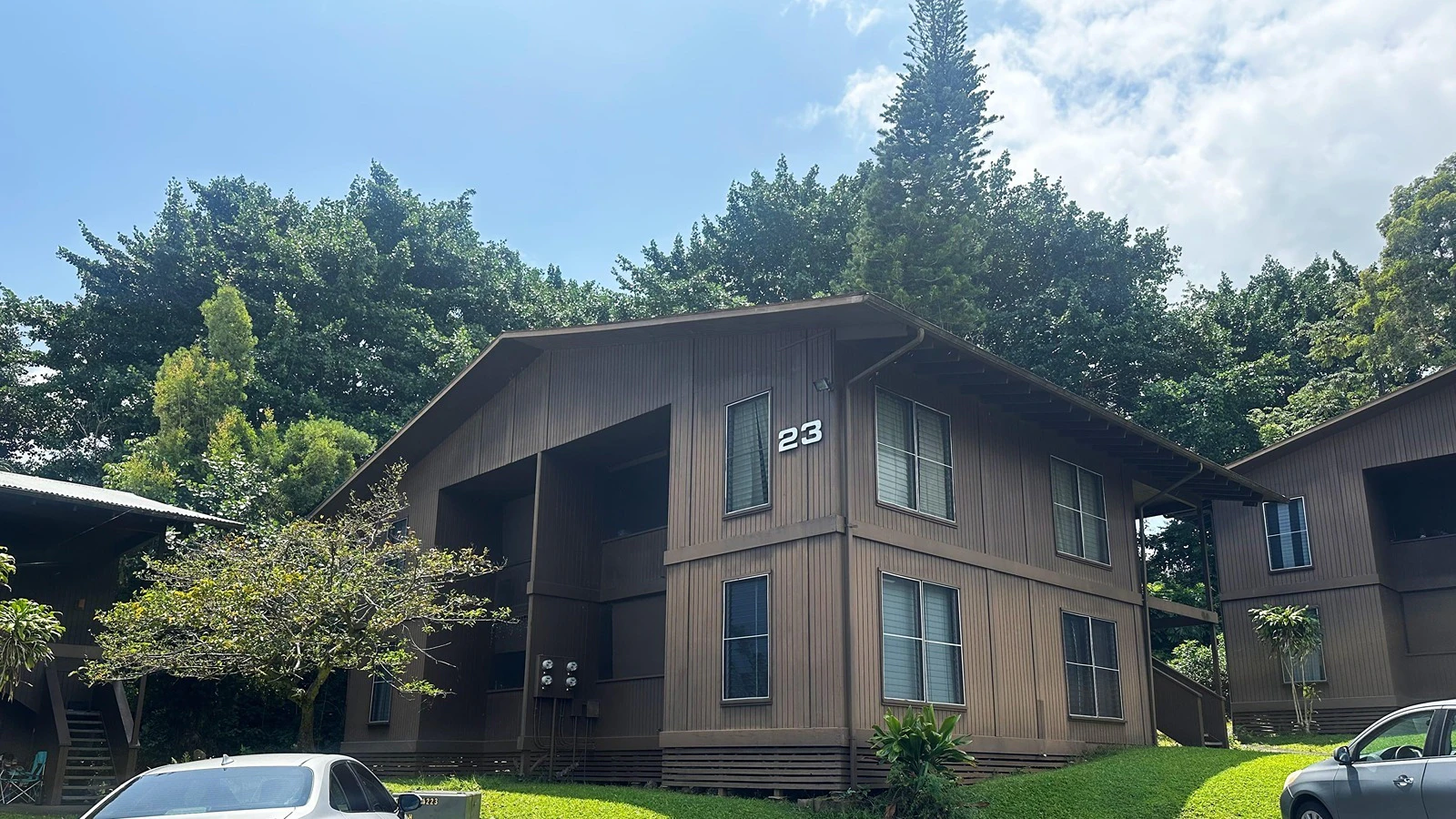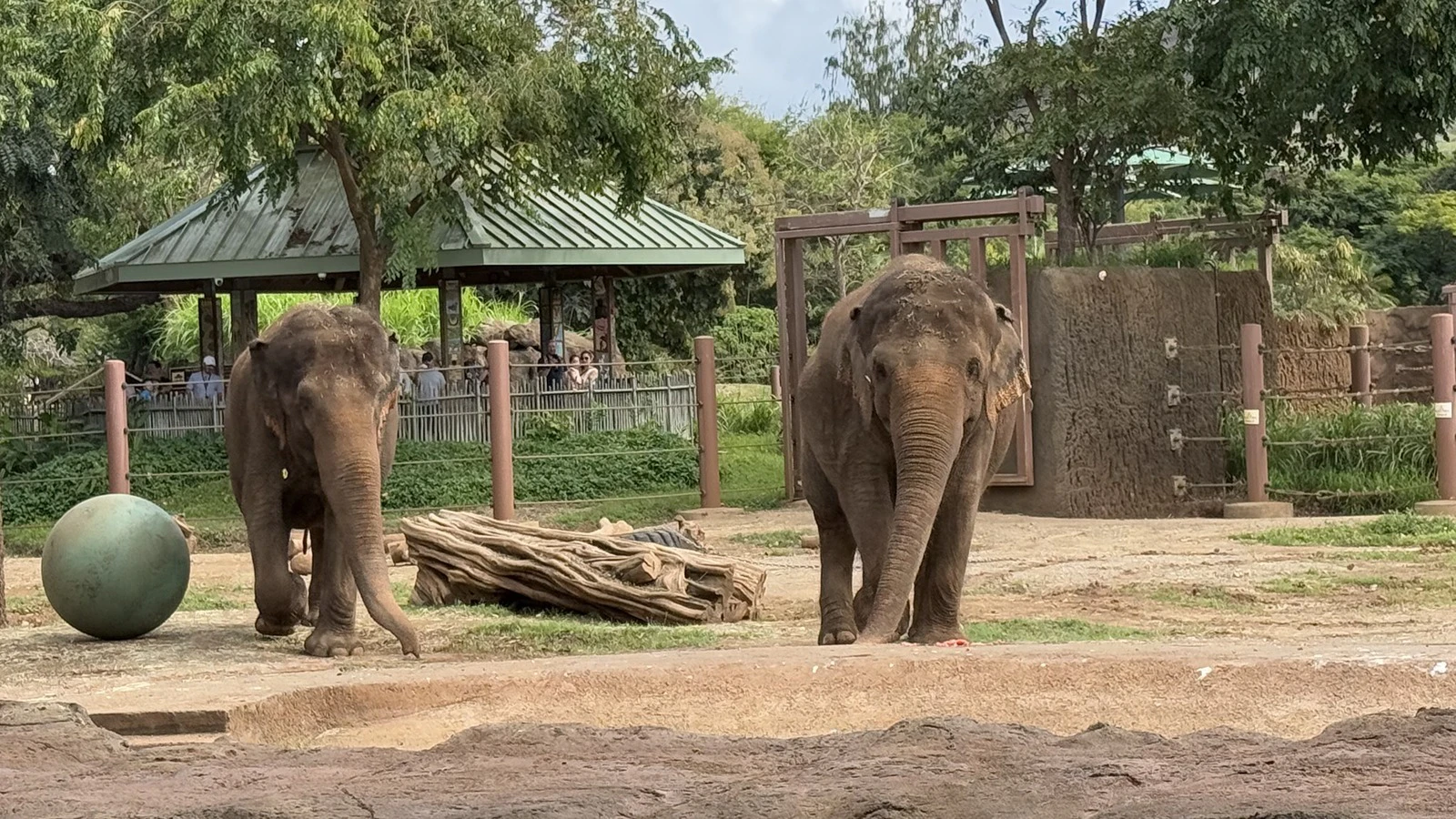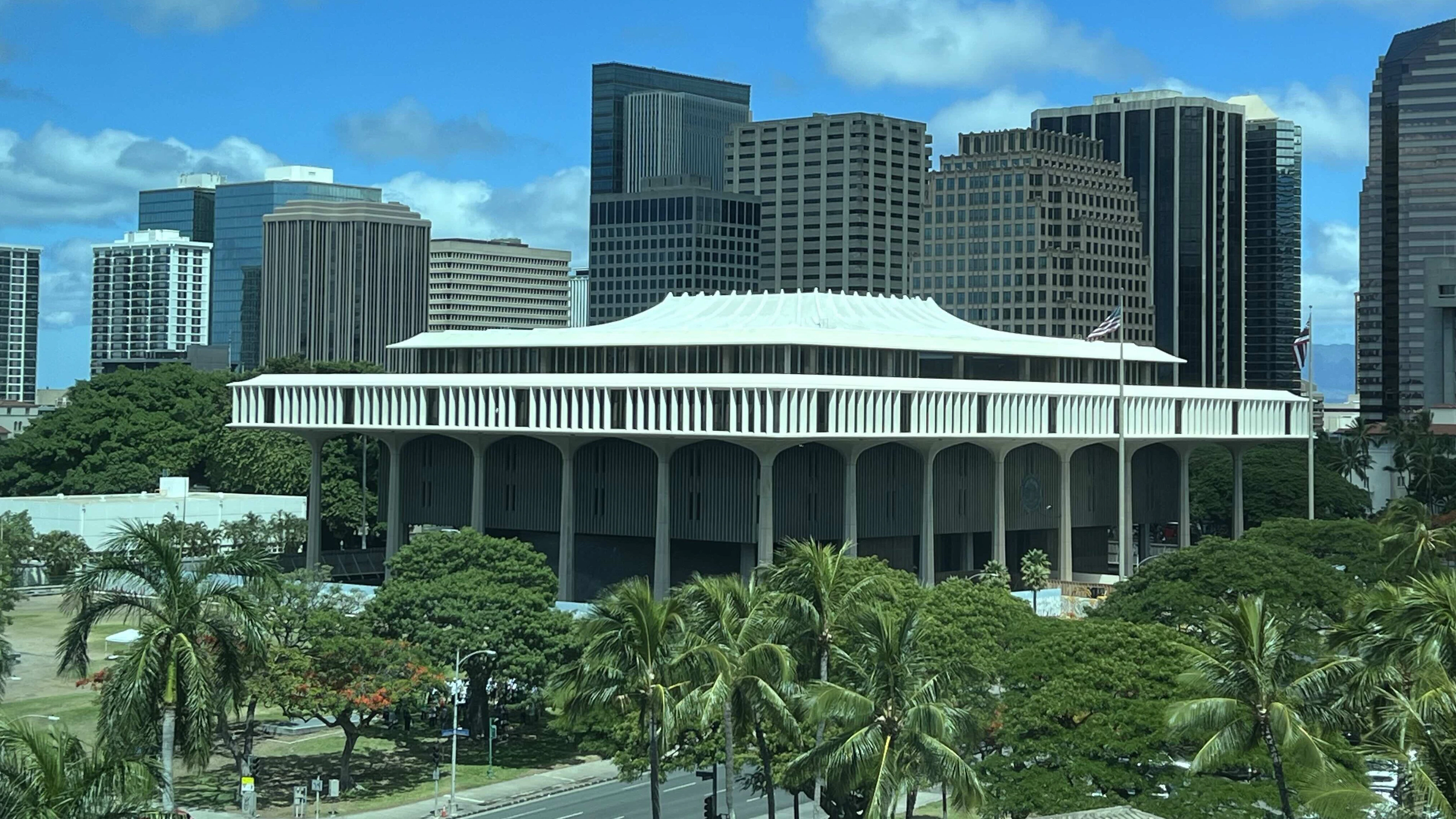After public-private partnerships have brought much needed student housing to its Mānoa campus, the University of Hawai‘i has secured a third collaboration, this time aiming to expand housing near UH-Hilo.
Its third P3 project has the university partnering with the not-for-profit Community Development Alliance Corp. Hilo to manage and redevelop the Hale Kāwili Apartments. The complex, located adjacent to the Hilo campus at 430 W. Kāwili St., was built in 1972 and is the only privately owned apartment in Hilo that serves only UH-Hilo students, faculty and staff, the university says.
CDAC Hilo agreed to a 45-year lease for the 100-unit, 208-bed complex. The organization assumes ownership of the existing facilities and took full responsibility for operating, maintaining and upgrading the property on July 1, a recent announcement from UH noted.
In Hilo, there's conventional on-campus housing. UH-Hilo's newest on-campus residence hall, Hale ‘Alahonua, opened in 2013 but "struggled to reach capacity" in the years immediately after.
But there's a lot of needs for students, Kalbert Young, vice president for budget and finance and chief financial officer for the UH system recently told Aloha State Daily
"There's things about the shortage of housing, shortage of available housing, shortage of affordable housing, and then there's also a shortage of housing situations, like ones that can accommodate families or children," he says. "The UH-Hilo campus is actually the only campus that has had housing that was both affordable — less than market — but also could accommodate families, and that was Hale Kāwili."
Hale Kāwili is technically on UH property adjacent to the Hilo campus but has never been considered part of the campus proper.
Young says that the complex's previous operator was "getting out of the business," which is what prompted UH to find a different arrangement and different structure with a new partner.
"We want to make sure that we have a variety of inventory that can meet a broad section of our students' needs," he says. "We're not able to meet all of them, as in regards to housing, but definitely at Hilo, between the on-campus dorms and Hale Kāwili, we have a pretty broad spectrum of product available for students to live in."
According to Young, the original provider, Adult Student Housing Hawai‘i, had an original lease of about 50 years, which termed out about seven years ago. This particular P3 project was born out of a desire to keep a similar arrangement in place with a new partner.
"They had wanted to transition and the property needed for reinvestment, so going back seven-plus years, the university and ASHH had been in discussions about what could be the next level for the property," he says. "I think even at that time, ASHH was considering that they would be winding down their operations but they did work with the university to stay on as long as possible for the university to figure out or find another alternative."
ASHH operated the property for longer than its original lease, Young says, noting, too that UH has had a "couple of solicitations" offering the property for partnership but was unable to find a partner that met all of the university's needs and matched what ASHH was previously doing.
"At the same time, over the last seven years, we've been doing other student housing P3 projects at UH Mānoa," he says. "Those have been successful in the sense that we've been able to get new inventory of housing for UH Mānoa but without the university having to make the monetary investment, and instead bringing in a private partner to help us in financing but also in operating.
"That model has proven successful for us, so we thought it would be a great opportunity to do that at UH-Hilo as well."
Previous P3s
Two earlier P3 projects — the Walter Dods, Jr. RISE Centerand Hale Haukani — serve UH Mānoa. According to UH, these residences have been designed, financed and are operated by private nonprofits, and UH programs have dedicated space within the buildings.
Ground broke on RISE, or the Residences for Innovative Student Entrepreneurs, in early 2022 and it opened in the fall of 2023.
The innovation center and student housing is located on the site of the former Atherton YMCA, which was remodeled and expanded. Meanwhile, the Pacific Asian Center for Entrepreneurship, or PACE, which is housed in UH Mānoa's Shidler College of Business, expanded into and manages the center.
The $77 million adaptive reuse project offers 219 units with 374 beds for undergrads and graduate students. There's also an 11,000-square-foot "innovation floor" with co-working spaces, meeting areas, a recording studio, classroom and prototyping labs, PACE notes.
The center was funded through a public-private partnership between UH, UH Foundation and Hunt Development Group Hawai‘i.
Hale Haukani, which offers furnished student and faculty housing, is set to open this month and will house the UH Mānoa Children's Center. It is independently owned and operated by CHF-Mānoa, LLC, its website notes.
"By working with private owner-operators, we can add badly needed beds — both on and near our campuses — while concentrating UH resources in maintaining our core residence halls,” UH President Wendy Hensel said in the announcement. “Because these projects are financed and operated by private entities, they expand our housing capacity without increasing tuition and with limited state investment.”
Young says CDAC Hilo has already assumed its property management role at Hale Kāwili, but the organization will also invest capital to repair, modernize or renovate the facilities over time.
According to the university announcement, as part of the agreement, CDAC Hilo has five years to submit a full redevelopment plan, "which may include demolishing and rebuilding the current structures."
There's no specific timeline, Young says, but noted the university is "really optimistic about collaborating and cooperating with CDAC to construct a development plan that has a timeline for what the university would hope. ... Our goal is that the property gets modernized, whether that means renovation or new building, we are actually open to that, and that's what we would want to collaborate with CDAC to see what makes sense from a development standpoint."
And given the state of housing in Hawai‘i — even on Hawai‘i Island and in the Hilo area — for students and the issues around affordability, accessibility and availability, "I think that ideally, it would be an awesome goal if the property can be expanded to accommodate more housing."
Young says that unlike conventional university housing that only serves university students or faculty, Hale Kāwili offers space for UH-Hilo students and their families, like spouses or children who could not be accommodated in typical on-campus housing.
"The trend in higher education, there are more students that have a need for additional amenities, for housing accommodating families, so I think it would be a great achievement if we could eventually get to the place where a redevelopment plan includes expanding the number of units."
“CDAC is honored to provide housing for faculty and students at the Hilo campus,” said CDAC CEO Jared Everett said in the university announcement. “Helping universities provide affordably-priced, quality housing is our mission, and we look forward to working with the university on this project.”
For the latest news of Hawai‘i, sign up here for our free Daily Edition newsletter.
Stephanie Salmons can be reached at stephanie@alohastatedaily.com.





